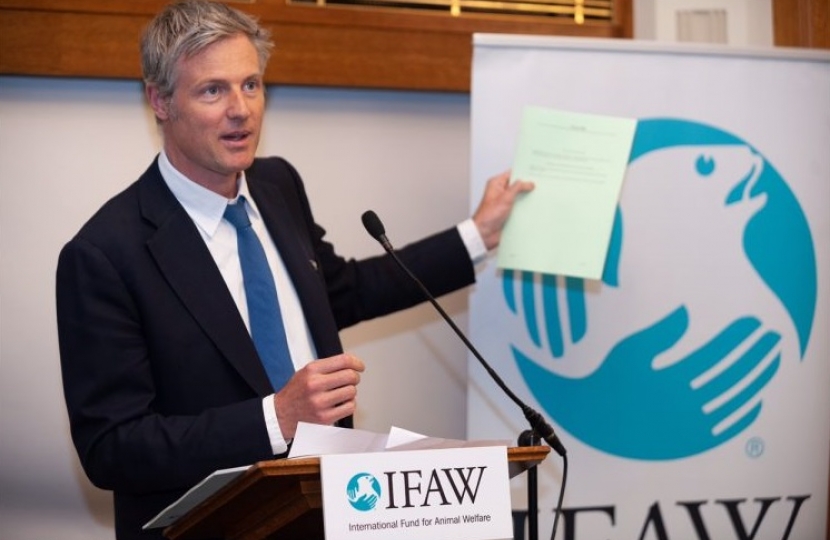
Richmond Park and North Kingston MP Zac Goldsmith hosted and addressed the launch of a groundbreaking new report about the online trade in live wildlife and their parts, which is driving endangered species further towards extinction.
Disrupt: Wildlife Cybercrime – Uncovering the scale of online wildlife trade, a new report released by the International Fund for Animal Welfare (IFAW), highlights the vast quantity of live animals and their body parts available for sale online and the threat this poses to the future survival of many species.
Over a six-week period in 2017, with a focus on France, Germany, Russia and the United Kingdom, IFAW’s team of experts and researchers discovered that thousands of live, endangered and threatened animals as well as animal products were being offered for sale online. IFAW identified 5,381 advertisements spread across 106 online marketplaces and social media platforms, cataloguing 11,772 endangered and threatened specimens worth £3,044,974 (US $3,942,329). Almost one-fifth of the advertisements found offered ivory or suspected ivory products. Additionally, live animals made up the overwhelming majority (80%) of specimens, demonstrating the popularity of owning exotic animals such as tortoises, parrots, owls, primates and even big cats as pets. Reptiles, particularly live tortoises and turtles, were by far the most prevalent, representing 45% of wildlife specimens identified in the report. Almost a quarter of the remaining specimens were birds, including endangered African grey parrots. Specimens from other mammals including cats, primates, bears and rhinos were also identified.
Philip Mansbridge, UK Director of IFAW, said: “We all have a part to play in protecting our most threatened wildlife, whether as consumers, politicians or those involved in running the online marketplaces where so much of this trade in live animals and animal products takes place. IFAW remains as committed as ever to fighting the scourge of wildlife cybercrime and we will continue to bring together key players to do so. Our investigation shows ivory is still a major component of online wildlife trade and so it is vital that the UK ivory ban Bill, now introduced to Parliament, progresses swiftly into legislation.”
Zac Goldsmith said: “Having campaigned against the ivory trade and the illegal wildlife trade for many years, I am delighted to support IFAW’s work to stop wildlife cybercrime. With so many of our most endangered species at a tipping point it is important that we all do our part to stop this trade and protect our wildlife, from elephants to rhinos to parrots. The Government’s Ivory Bill, which has just been put before Parliament is a great step forward, but we need more action, and I will be pushing for a continued lead from our Government in the build-up to the Illegal Wildlife Trade Conference in London this October.”
